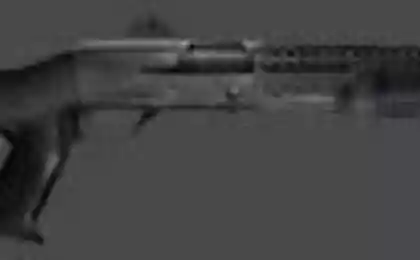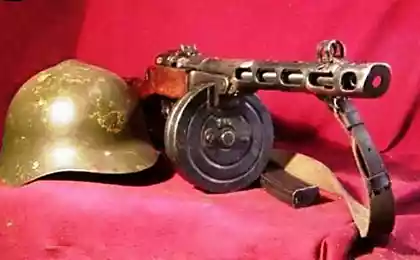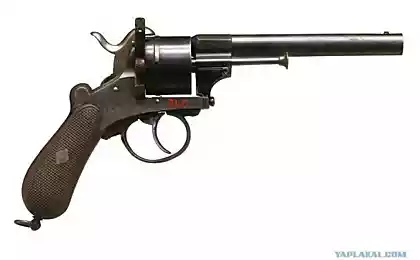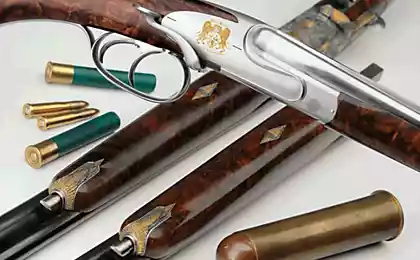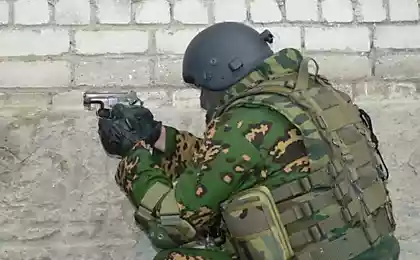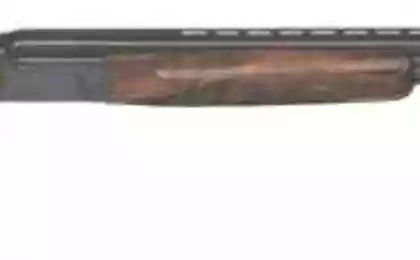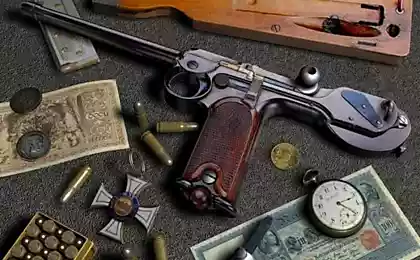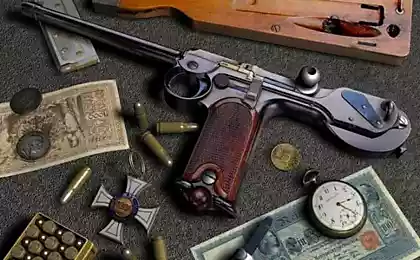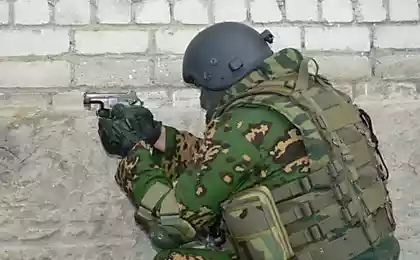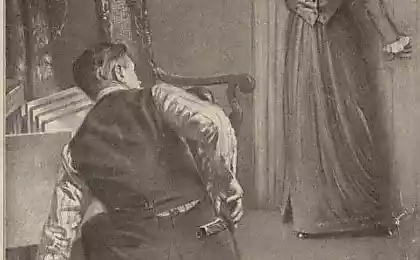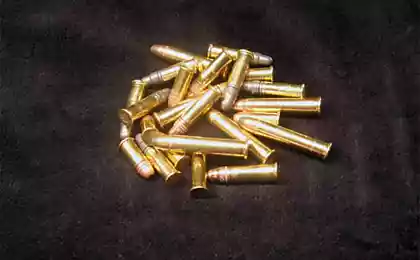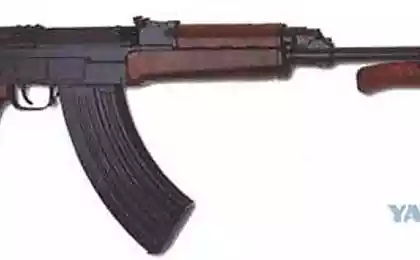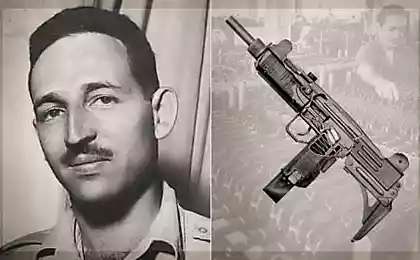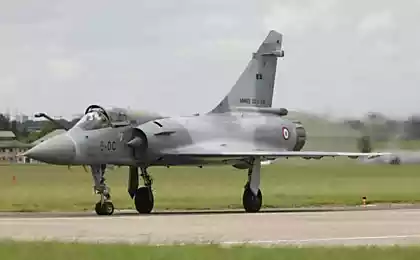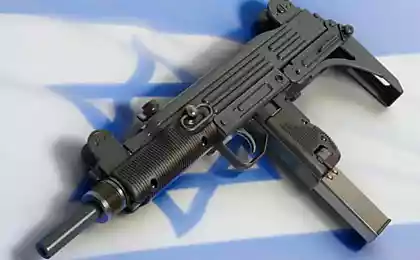832
Unusual weapons
Makuahutl - Aztec weapon resembling a sword. Its length usually reaches 90-120 cm. Along the wooden blades were attached pointy pieces of volcanic glass (obsidian). The wounds from the use of these weapons were obtained horrific due to a combination of sharp edge (enough to decapitate the enemy) and chipping that tore flesh. The last mention of makuahutle refers to 1884.
6 photos + text
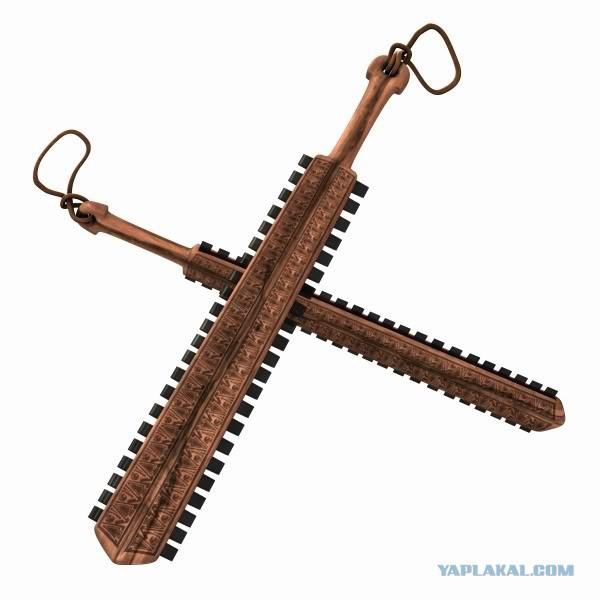
Tepustopili - in design is similar to the Aztec weapons makuahutl, but made in the form of a spear, ie, with a tip the size of a hand and a pen in human growth. Here, too, used sharpened pieces of obsidian, framing the wooden base. Tepustopili has a relatively large radius of destruction, easily pierce armor and flesh of the enemy, and get this sharp serrated tip of the body could only be at the cost of appalling suffering.
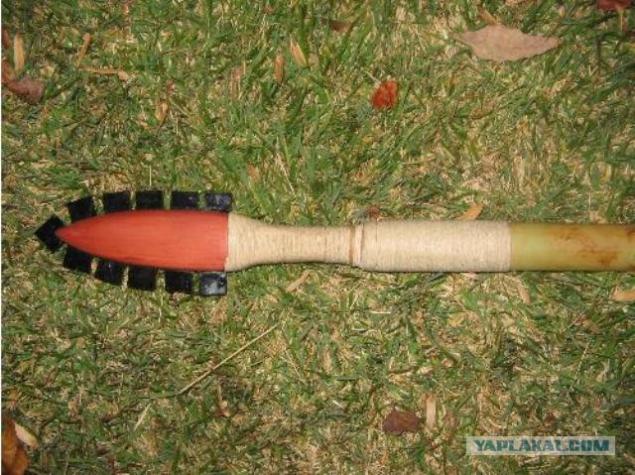
Kpinga - throwing knife with multiple blades, which was in honor of the soldiers of the tribe Azanda in ancient Nubia. The length of the blade was approximately 55 cm. From the base in different directions diverge three iron blades that were inflicted on the enemy to maximize damage. Knife kpinga was not only weapons, but also a kind of badge of honor, as he had the right to wear only experienced warriors.
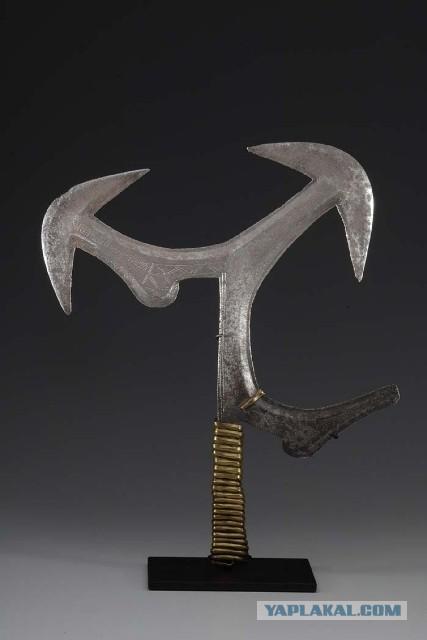
Qatar - perhaps the most unusual kind of Indian daggers. It is distinguished by the handle in the form of letter H made of the same material as the blade, with two thin parallel bars forming a support for the left hand. Qatar intended for stabbing, and the skillful use of easily pierced armor. As kpinga, Qatar was a sign of high status of its owner.
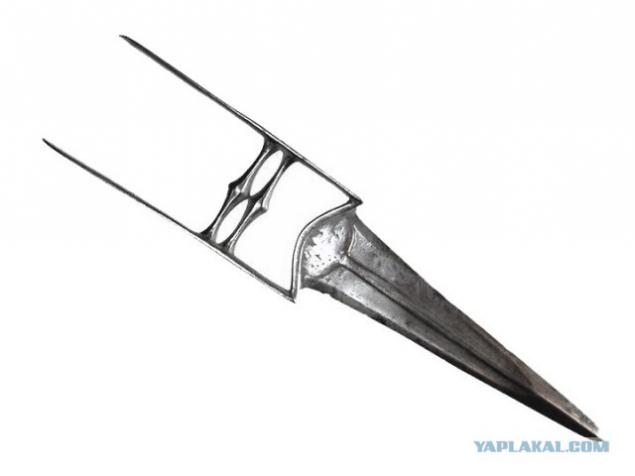
Chakra - Indian throwing ring. It is made of metal and honed on the outer edge. Depending on the size, the soldiers wore it on the wrist or as a bracelet or the neck, and if necessary, how to throw a Frisbee.
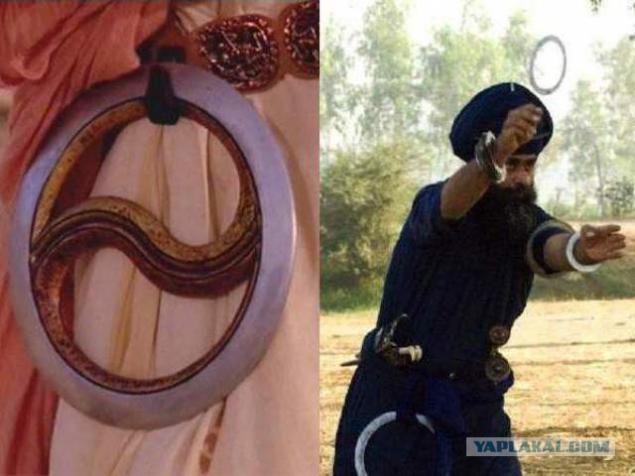
KHOPESH - Egyptian sword, a relative of the Sumerian and Assyrian counterparts. KHOPESH made of bronze (later iron). It consisted of a sickle and wooden (mostly) handle. Due to its shape KHOPESH allowed to disarm the enemy, he picked up his shield. Island for this weapon was only the outer edge that could cut through armor.
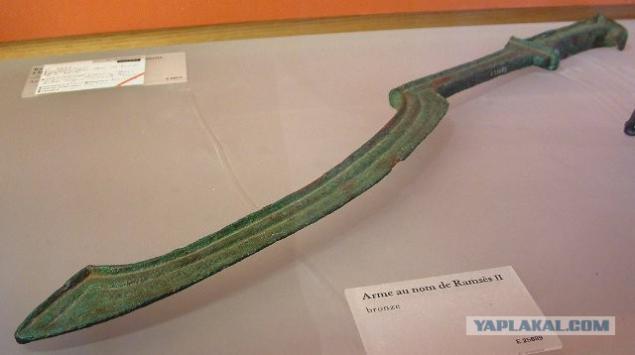
Chukonu - Chinese multiply charged crossbow, in which the actions of the tension of the string, installation screws and the descent of the string produced a single motion. In 15 seconds, it could produce up to 10 arrows at a distance of about 60 meters. Its penetrating power was relatively small, but thanks to the speed, coupled with the poisonous arrowheads, he was really a formidable weapon and was used until the Sino-Japanese War of 1894-1895.
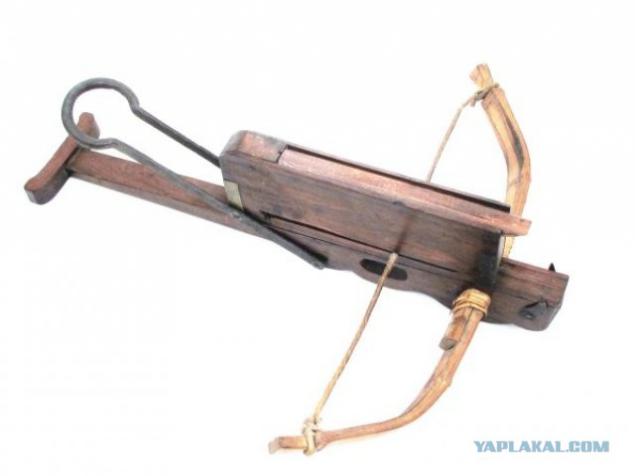
Source:
6 photos + text

Tepustopili - in design is similar to the Aztec weapons makuahutl, but made in the form of a spear, ie, with a tip the size of a hand and a pen in human growth. Here, too, used sharpened pieces of obsidian, framing the wooden base. Tepustopili has a relatively large radius of destruction, easily pierce armor and flesh of the enemy, and get this sharp serrated tip of the body could only be at the cost of appalling suffering.

Kpinga - throwing knife with multiple blades, which was in honor of the soldiers of the tribe Azanda in ancient Nubia. The length of the blade was approximately 55 cm. From the base in different directions diverge three iron blades that were inflicted on the enemy to maximize damage. Knife kpinga was not only weapons, but also a kind of badge of honor, as he had the right to wear only experienced warriors.

Qatar - perhaps the most unusual kind of Indian daggers. It is distinguished by the handle in the form of letter H made of the same material as the blade, with two thin parallel bars forming a support for the left hand. Qatar intended for stabbing, and the skillful use of easily pierced armor. As kpinga, Qatar was a sign of high status of its owner.

Chakra - Indian throwing ring. It is made of metal and honed on the outer edge. Depending on the size, the soldiers wore it on the wrist or as a bracelet or the neck, and if necessary, how to throw a Frisbee.

KHOPESH - Egyptian sword, a relative of the Sumerian and Assyrian counterparts. KHOPESH made of bronze (later iron). It consisted of a sickle and wooden (mostly) handle. Due to its shape KHOPESH allowed to disarm the enemy, he picked up his shield. Island for this weapon was only the outer edge that could cut through armor.

Chukonu - Chinese multiply charged crossbow, in which the actions of the tension of the string, installation screws and the descent of the string produced a single motion. In 15 seconds, it could produce up to 10 arrows at a distance of about 60 meters. Its penetrating power was relatively small, but thanks to the speed, coupled with the poisonous arrowheads, he was really a formidable weapon and was used until the Sino-Japanese War of 1894-1895.

Source:

